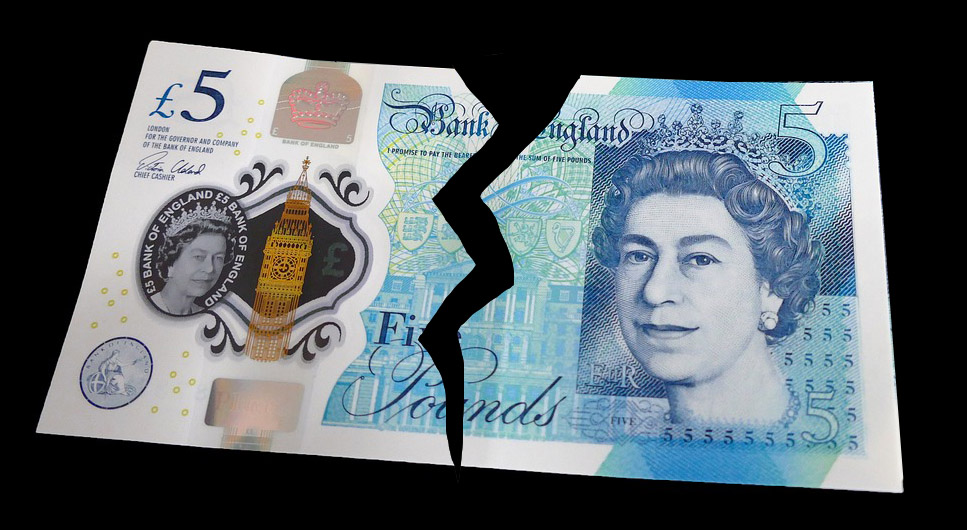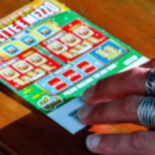The question, “Do shops accept ripped notes or can they refuse them?” is a common one, especially in the United Kingdom. Many people have found themselves in situations where they accidentally damage a banknote and are left wondering if it still holds any value. Despite the note’s less-than-perfect condition, it might still carry its original value, but several factors come into play. This Casino Beasts blog will delve into these factors and provide a comprehensive understanding of the subject matter.
Do Shops Accept Ripped Notes In The UK?
In the UK, whether shops accept ripped notes is generally at the discretion of the business. There is no legal obligation for a shop to accept a banknote, whether it is damaged or not. The acceptance of damaged or ripped notes often depends on the degree of the damage and whether key features of the note, such as its security elements, are intact and verifiable.
For minor damage, such as small tears or wear that does not affect the note’s critical security features, many shops may accept the note for transactions. However, for more significant damage, where important details of the note are obscured or missing, shops are more likely to refuse acceptance due to the difficulty in verifying its authenticity and value.
It’s worth noting that the Bank of England provides guidelines on what to do with damaged or mutilated banknotes. If a note is severely damaged, individuals can submit it to the Bank of England’s Mutilated Note service for examination, and possibly, reimbursement. The Bank will assess the note to determine its value and whether a replacement is warranted.
Shops have the right to refuse any form of payment that they cannot verify as legitimate, including severely damaged banknotes. In practice, acceptance of slightly damaged notes can vary widely based on the retailer’s policy and the cashier’s judgement at the time of transaction.
Can Shops Refuse Ripped Notes?
Yes, shops can refuse to accept ripped notes. In spite of the fact that the Bank of England states that a banknote that has been ripped or damaged may still hold its original value, it is entirely up to the retailer to decide whether to accept it or not. This is because there’s no legal obligation that binds shops in the UK to accept damaged or ripped banknotes. This principle should not be confused with ‘legal tender’, which is only relevant in the context of debt settlement.
Are Ripped Notes Valid Legal Tender?
The term ‘legal tender’ is often used to refer to money that is officially recognised by the government for the settlement of debts. In the context of ripped banknotes, it’s essential to understand that the concept of ‘legal tender’ has little use in everyday transactions. It does not mandate that the recipient must accept the money as a form of payment. Therefore, the acceptance of ripped or damaged banknotes is at the retailer’s discretion.
Ripped notes may still be refused by shops and other businesses. Even if the Bank of England validates and replaces ripped notes, it does not necessarily mean that shops and other businesses are obliged to accept them. Acceptance of such notes is entirely at the discretion of the retailer.
Will The Post Office Change Ripped Notes?
The UK Post Office itself does not directly exchange damaged or ripped banknotes. However, the process for exchanging damaged UK banknotes typically involves sending them to the Bank of England’s Mutilated Note service. This service evaluates damaged notes to determine their value and whether a replacement or compensation is warranted.
Individuals with damaged or ripped banknotes have the option to:
- Deposit them at their bank: Many banks accept damaged banknotes from their customers and can exchange them on their behalf. The bank may then send these notes to the Bank of England for reimbursement.
- Send them directly to the Bank of England: The public can submit damaged banknotes directly to the Bank of England’s Mutilated Note service. The Bank of England’s website provides detailed instructions on how to do this, including the form that needs to be filled out and the address to which the notes should be sent.
The Bank of England evaluates each submitted note to confirm its authenticity and assess the extent of the damage. If the note is deemed genuine and a portion of it is missing, the Bank of England may still provide a full or partial reimbursement based on the remaining identifiable parts of the note.
For the most current procedures and policies regarding damaged banknotes, including any potential services offered through the UK Post Office or other entities, it may be best to consult directly with the Bank of England or the official UK Post Office website.
What To Do With Ripped Bank Notes
If you have a ripped banknote in the UK, there are several steps you can take to potentially use it or exchange it. Here’s what you can do:
- Spend It: If the note is only slightly damaged (e.g., small tears or wear) and the important features (serial numbers, security features) are intact, many shops and businesses may potentially accept it as payment.
- Bank Deposit: Many banks accept damaged banknotes from their customers. You might be able to deposit the note into your account, and the bank will handle the rest. The bank may exchange the note through the Bank of England if necessary.
- Exchange at the Bank of England: The Bank of England offers a Mutilated Notes service that allows individuals to possibly exchange damaged or mutilated banknotes. You will most likely need to fill out a form and send the note to the Bank of England, which will assess the note and, if genuine, provide a replacement or compensation. The form and instructions are available on the Bank of England’s website.
Things to Keep in Mind
- Authenticity: The Bank of England will only exchange notes that it verifies as genuine.
- Amount of Compensation: Compensation is based on how much of the note is intact. If a significant portion of the note is missing or if any key features are damaged, this could affect the amount compensated.
- Time Frame: The process may take some time, especially if there’s a need to thoroughly verify the note’s authenticity and assess its condition.
Using these methods might ensure that you’re not left out of pocket due to having a ripped banknote. Be sure to handle banknotes carefully to try and avoid any damage, and when in doubt, consult with your bank or the Bank of England for guidance on handling damaged currency.







